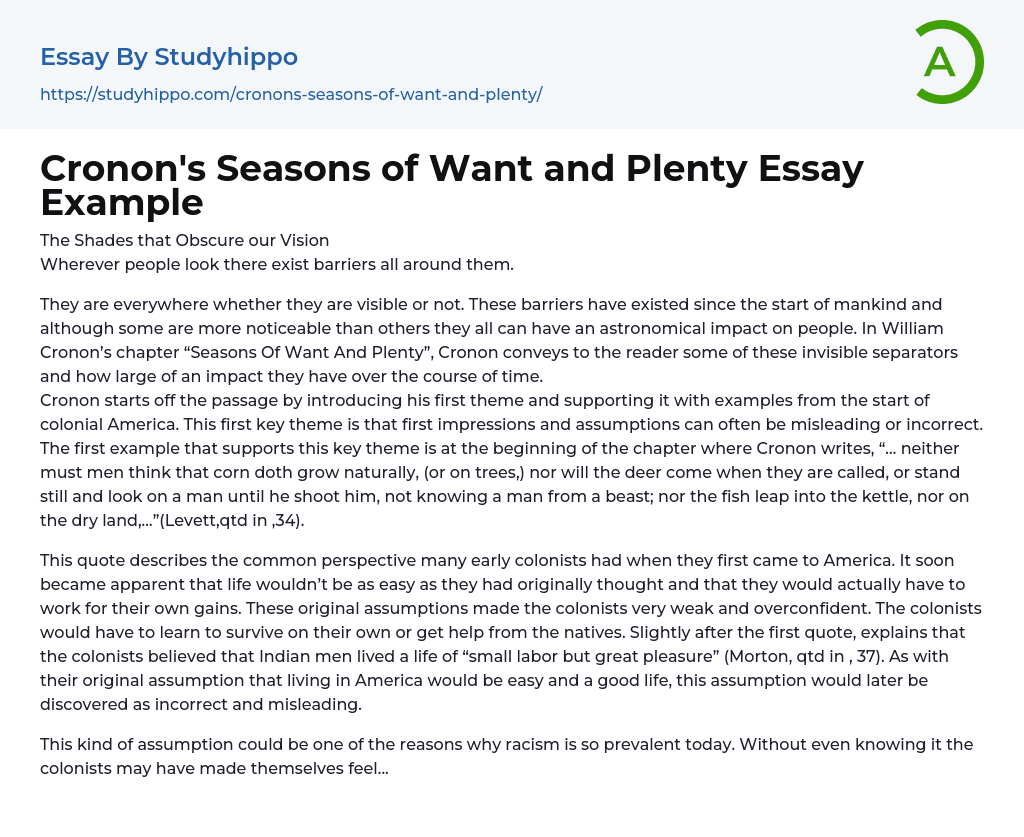The Shades that Obscure our Vision
Wherever people look there exist barriers all around them.
They are everywhere whether they are visible or not. These barriers have existed since the start of mankind and although some are more noticeable than others they all can have an astronomical impact on people. In William Cronon’s chapter “Seasons Of Want And Plenty”, Cronon conveys to the reader some of these invisible separators and how large of an impact they have over the course of time.
Cronon starts off the passage by introducing his first theme and supporting it with examples from the start of colonial America. This first key theme is that first impressions and assumptions can often be misleading or incorrect. The first example that supports this key theme is at the beginning of th
e chapter where Cronon writes, “… neither must men think that corn doth grow naturally, (or on trees,) nor will the deer come when they are called, or stand still and look on a man until he shoot him, not knowing a man from a beast; nor the fish leap into the kettle, nor on the dry land,…”(Levett,qtd in ,34).
This quote describes the common perspective many early colonists had when they first came to America. It soon became apparent that life wouldn’t be as easy as they had originally thought and that they would actually have to work for their own gains. These original assumptions made the colonists very weak and overconfident. The colonists would have to learn to survive on their own or get help from the natives. Slightly after the first quote, explains that the colonists believed that Indian
men lived a life of “small labor but great pleasure” (Morton, qtd in , 37). As with their original assumption that living in America would be easy and a good life, this assumption would later be discovered as incorrect and misleading.
This kind of assumption could be one of the reasons why racism is so prevalent today. Without even knowing it the colonists may have made themselves feel...




